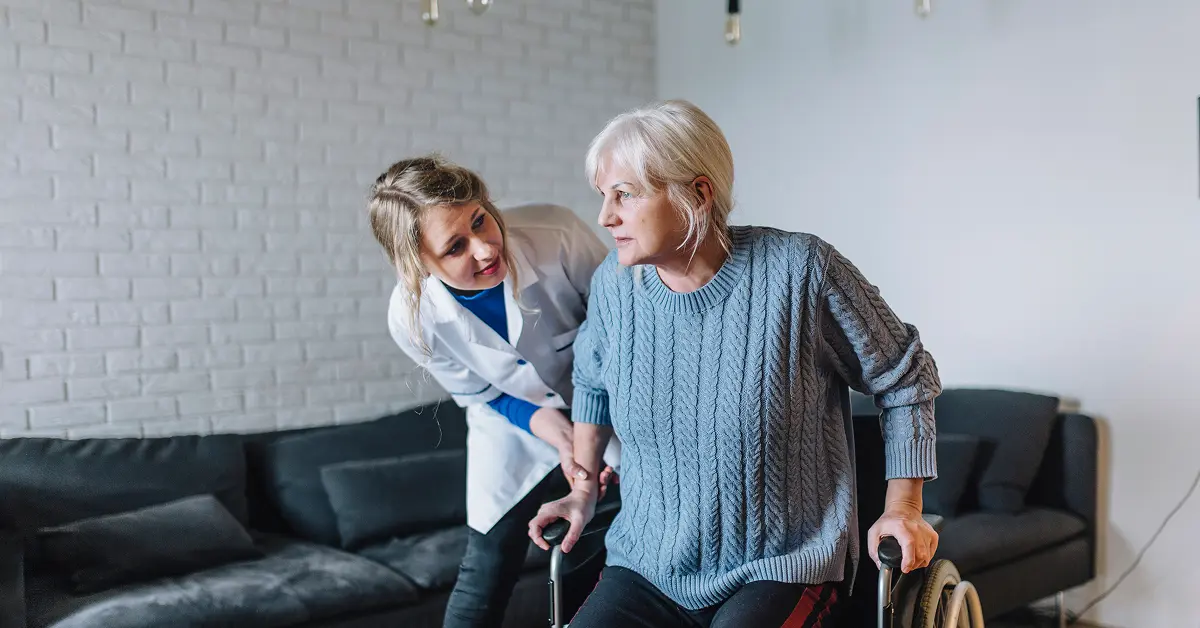Dementia is a progressive condition that affects memory, thinking, and daily functioning. In India, where family plays a central role in caregiving, early support for dementia patients through structured home care routines is becoming essential. While medical treatment remains vital, early intervention through personalised and consistent care at home can drastically improve the quality of life for both the patient and their family.
In this blog post, we will explore the benefits of early dementia support via Best Caregiver Services at Home routines and how it can make a tangible difference in managing the condition effectively and compassionately.
Improved Cognitive Function Through Mental Stimulation
Early-stage dementia does not mean the end of mental functioning. With the right support, individuals can retain their independence and mental agility longer. Structured home routines that include reading, puzzles, music therapy, or cultural activities such as chanting or bhajan singing can stimulate the brain.
Home Care Tip: A caregiver can introduce memory games or storytelling sessions every evening to exercise cognitive functions in a fun and engaging way.
Enhanced Emotional Well-being and Reduced Anxiety
Unfamiliar environments and unpredictable schedules can increase confusion and anxiety in dementia patients. Familiar home surroundings, combined with a consistent daily routine, help foster a sense of safety and emotional stability.
Example Routine:
- Morning tea and prayer
- Light walk in the garden
- Bath and breakfast
- TV time or listening to old songs
Increased Family Involvement and Bonding
In Indian households, joint families are still prevalent in many regions. Early dementia care at home allows multiple family members to be involved. It also provides opportunities for grandchildren and other relatives to bond with the senior, reinforcing intergenerational ties.
Caregiver Insight: Educating family members about the disease can help them participate in care meaningfully without overwhelming the patient with unfamiliar behaviours.
Better Symptom Monitoring and Early Medical Intervention
When a person with dementia is under home care from the early stages, any changes in behaviour, mood, or health can be closely monitored. Early detection of worsening symptoms allows doctors to adjust medications and care plans promptly.
Daily Routine Tip: Maintain a dementia care journal at home. Caregivers can note down sleep patterns, appetite, mood swings, or sudden confusion episodes and share them during doctor visits.
Improved Nutrition and Hydration
People with dementia often forget to eat or drink, leading to dehydration and malnutrition. A structured home care routine ensures that meals are timely, balanced, and suited to the patient’s dietary needs.
Home Care Practices:
- Prepare home-cooked Indian meals rich in vegetables, proteins, and healthy fats.
- Use gentle reminders or visual meal schedules.
- Encourage hydration with coconut water, chaas, or fruit juices.
Fewer Hospital Visits and Lower Healthcare Costs
With home care routines in place early on, dementia-related complications such as falls, infections, and severe behavioural disturbances can be minimised. This not only enhances comfort but also reduces hospital visits, which are both expensive and distressing for elderly patients.
Financial Tip for Indian Families: Investing early in at-home caregiver services or training a family member reduces long-term healthcare costs significantly.
Enhanced Sleep Quality
Dementia patients often face disrupted sleep patterns. Early intervention through calming evening routines like warm baths, light dinners, and music therapy can establish a healthy circadian rhythm.
Sleep Routine Sample:
- 6:00 PM: Early dinner
- 7:00 PM: Aromatherapy or oil massage
- 8:00 PM: Prayer and light conversation
- 8:30 PM: Sleep time
Safe Environment Minimises Risk
In Indian homes, especially older ones with stairs, clutter, or uneven flooring, safety is a major concern. Early home care includes assessing and modifying the home to prevent accidents.
Home Safety Checklist:
- Install grab bars in bathrooms
- Remove loose rugs
- Ensure adequate lighting
- Mark steps or uneven surfaces
Continuity in Cultural and Religious Practices
Maintaining cultural identity is comforting for Indian seniors. With early home care support, dementia patients can continue attending poojas, temple visits, or reading scriptures with assistance. This not only nurtures spiritual well-being but also helps retain long-term memories.
Cultural Integration Tip: Include prayer time, bhajan sessions, or attending local temple festivals in their weekly routine.
Delayed Need for Institutional Care
One of the most important benefits of early home-based dementia support is that it can delay or even prevent the need for nursing home admission. Staying at home with familiar people, language, food, and surroundings brings unmatched peace.
Families who start care early are often able to continue support within the home setting for many years, avoiding the emotional and financial burden of institutional care.
Conclusion
Dementia is a life-altering condition, but it doesn’t have to mean losing one’s dignity or independence. In India, where strong family systems and cultural values play a key role, early intervention through home care routines is both practical and profoundly beneficial.
From improving mental and emotional health to enhancing safety and lowering costs, early dementia support at home can dramatically transform outcomes for seniors. As awareness grows and more families take a proactive approach, we can ensure our elders live not only longer but with grace and comfort in the place they love most — their home.
Call to Action for Indian Families
If you have a loved one showing early signs of memory loss or confusion, don’t wait. Begin establishing a supportive home care routine today. Consult with trained home care professionals, explore dementia education resources in your local language, and create a care plan tailored to your family’s needs.
Let us care for our elders the way they cared for us.
Contents
- Improved Cognitive Function Through Mental Stimulation
- Enhanced Emotional Well-being and Reduced Anxiety
- Increased Family Involvement and Bonding
- Better Symptom Monitoring and Early Medical Intervention
- Improved Nutrition and Hydration
- Fewer Hospital Visits and Lower Healthcare Costs
- Enhanced Sleep Quality
- Safe Environment Minimises Risk
- Continuity in Cultural and Religious Practices
- Delayed Need for Institutional Care
- Conclusion
- Call to Action for Indian Families
Our 24*7 services
Latest Posts
- What Is Respite Care and Why Is It Important
- Affordable home care for senior citizens in India
- Caring for Seniors with Dementia or Alzheimer's at Home
- Senior Caregiving A Guide for Every Family
- How to Write a Caregiver Resume That Gets You Hired
- How Care After Hospital Discharge Speeds Up Recovery at Home
- How to Get Home Health Care for Seniors Through Medicare
- What Does a Senior Citizen Caregiver Really Do at Home
- How to Care for Elderly Parents with Alzheimer’s or Dementia
- How to Get 24-Hour Care for Seniors at Home



